 Backend Development
Backend Development
 C#.Net Tutorial
C#.Net Tutorial
 Solution to nonsensical and 500 errors when debugging .Net 4.0 website in IIS7.5
Solution to nonsensical and 500 errors when debugging .Net 4.0 website in IIS7.5
Solution to nonsensical and 500 errors when debugging .Net 4.0 website in IIS7.5
I just deployed the ii7 dll written in x86, and the following problems will occur
iis 7 x86, Could not load file or assembly 'Name' or one of its dependencies. An attempt was made to load a program with an incorrect format.
To solve this problem, just set the iis compatible x86 program. The specific steps are:
1. Start-> Run
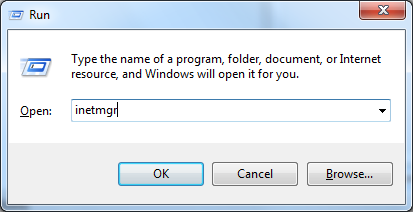
2.
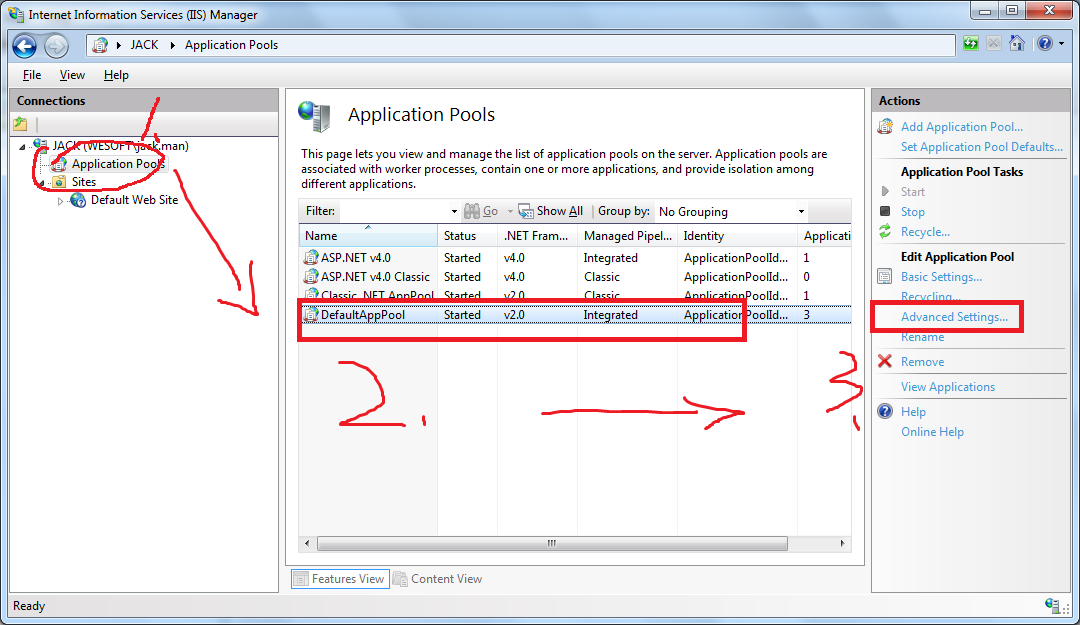
3. Advanced settings, just set Enable 32 - Bit Applications to True.
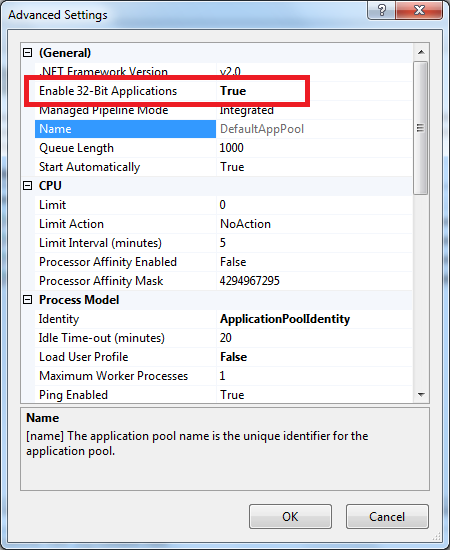
The solution to the nonsensical 500 error that appears on the .Net 4.0 website when debugging it in IIS7.5 that comes with Win7 Ultimate Edition does not mention the cause, but only the phenomenon.
Install Win7 and install VS2010, in which VS2010 comes with the .Net 4.0 runtime library. Turn on the built-in IIS function. It may be that only the flagship version comes with IIS. I have not tried it with other versions. Create a new website in IIS, in the application pool, set the website to use the .NET Framework v4.0 runtime library.
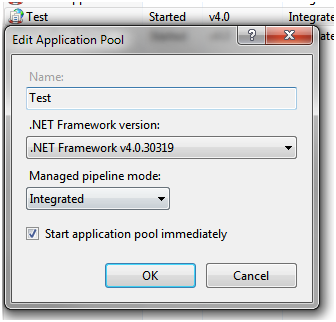 Browse
Browse
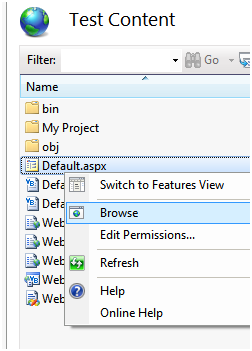 IE reported a 500 server error.
IE reported a 500 server error.
Because we are sure that there is no problem with the website using the debugging server that comes with VS, and there will be no errors. Therefore, it is probably an IIS setting issue. Later, after inquiries, the reason was that when I installed the system, I installed VS2010 first and then enabled IIS. In this case, .NET 4 was not registered in IIS, and the IIS that comes with Win7 only supports .NET 2.0. Therefore, you need to register it manually.
The registration steps are as follows:
Start by entering the word cmd in the search box, and then the cmd.exe application
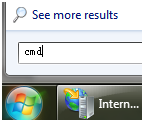
cmd.exe will appear. Right click on it and select Run as administrator.
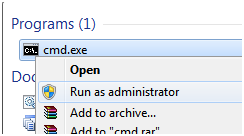
Paste the following command into the command line window and press Enter to complete the registration.
"%WINDIR%\Microsoft.NET\Framework\v4.0.30319\aspnet_regiis.exe" -iru -enable At this time, we see that in IIS, the 4.0 runtime support registration is successful.
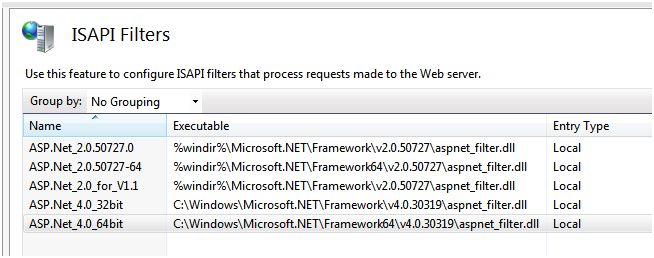
Refresh IE and the website comes out normally.
Unrecognized attribute "targetFramework" ---Solution: After installing VS2010, the following error will occur when a website created using .NET Framework 4 is placed under IIS (7.0):
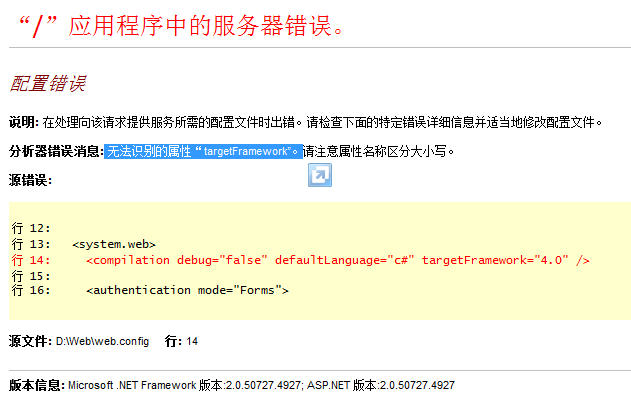
The "Version Information" tells us that the versions of .NET Framework and ASP.NET are both 2.0, and we used .NET Framework 4.0 when making the website, so the website must be set up The .NET Framework properties are 4.0.
Open Control Panel--Administrative Tools--Internet Information Services (IIS) Manager under Win7, select the default website, select "Advanced Settings..." in the "Manage Website" column on the right, and change "Applications" Pool" is changed to "ASP.NET v4.0", as shown in the following figure:
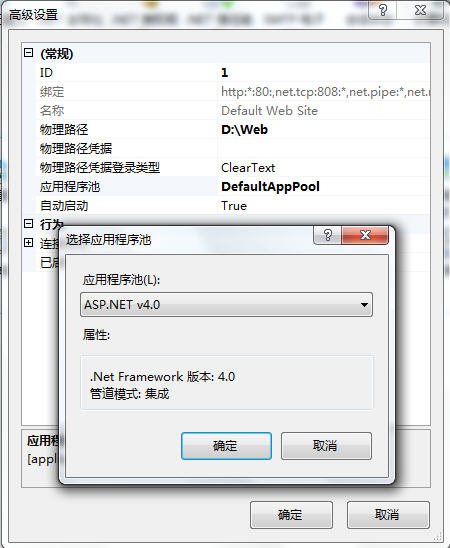
Now enter localhost in the browser, the problem should be solved!
For more related articles on solutions to nonsensical and 500 errors when debugging .Net 4.0 websites in IIS7.5, please pay attention to the PHP Chinese website!

Hot AI Tools

Undresser.AI Undress
AI-powered app for creating realistic nude photos

AI Clothes Remover
Online AI tool for removing clothes from photos.

Undress AI Tool
Undress images for free

Clothoff.io
AI clothes remover

AI Hentai Generator
Generate AI Hentai for free.

Hot Article

Hot Tools

Notepad++7.3.1
Easy-to-use and free code editor

SublimeText3 Chinese version
Chinese version, very easy to use

Zend Studio 13.0.1
Powerful PHP integrated development environment

Dreamweaver CS6
Visual web development tools

SublimeText3 Mac version
God-level code editing software (SublimeText3)

Hot Topics
 .NET Deep Dive: Mastering Asynchronous Programming, LINQ, and EF Core
Mar 31, 2025 pm 04:07 PM
.NET Deep Dive: Mastering Asynchronous Programming, LINQ, and EF Core
Mar 31, 2025 pm 04:07 PM
The core concepts of .NET asynchronous programming, LINQ and EFCore are: 1. Asynchronous programming improves application responsiveness through async and await; 2. LINQ simplifies data query through unified syntax; 3. EFCore simplifies database operations through ORM.
 How to use various symbols in C language
Apr 03, 2025 pm 04:48 PM
How to use various symbols in C language
Apr 03, 2025 pm 04:48 PM
The usage methods of symbols in C language cover arithmetic, assignment, conditions, logic, bit operators, etc. Arithmetic operators are used for basic mathematical operations, assignment operators are used for assignment and addition, subtraction, multiplication and division assignment, condition operators are used for different operations according to conditions, logical operators are used for logical operations, bit operators are used for bit-level operations, and special constants are used to represent null pointers, end-of-file markers, and non-numeric values.
 How to use char array in C language
Apr 03, 2025 pm 03:24 PM
How to use char array in C language
Apr 03, 2025 pm 03:24 PM
The char array stores character sequences in C language and is declared as char array_name[size]. The access element is passed through the subscript operator, and the element ends with the null terminator '\0', which represents the end point of the string. The C language provides a variety of string manipulation functions, such as strlen(), strcpy(), strcat() and strcmp().
 What is the role of char in C strings
Apr 03, 2025 pm 03:15 PM
What is the role of char in C strings
Apr 03, 2025 pm 03:15 PM
In C, the char type is used in strings: 1. Store a single character; 2. Use an array to represent a string and end with a null terminator; 3. Operate through a string operation function; 4. Read or output a string from the keyboard.
 Avoid errors caused by default in C switch statements
Apr 03, 2025 pm 03:45 PM
Avoid errors caused by default in C switch statements
Apr 03, 2025 pm 03:45 PM
A strategy to avoid errors caused by default in C switch statements: use enums instead of constants, limiting the value of the case statement to a valid member of the enum. Use fallthrough in the last case statement to let the program continue to execute the following code. For switch statements without fallthrough, always add a default statement for error handling or provide default behavior.
 How to handle special characters in C language
Apr 03, 2025 pm 03:18 PM
How to handle special characters in C language
Apr 03, 2025 pm 03:18 PM
In C language, special characters are processed through escape sequences, such as: \n represents line breaks. \t means tab character. Use escape sequences or character constants to represent special characters, such as char c = '\n'. Note that the backslash needs to be escaped twice. Different platforms and compilers may have different escape sequences, please consult the documentation.
 How to convert char in C language
Apr 03, 2025 pm 03:21 PM
How to convert char in C language
Apr 03, 2025 pm 03:21 PM
In C language, char type conversion can be directly converted to another type by: casting: using casting characters. Automatic type conversion: When one type of data can accommodate another type of value, the compiler automatically converts it.
 What is the function of C language sum?
Apr 03, 2025 pm 02:21 PM
What is the function of C language sum?
Apr 03, 2025 pm 02:21 PM
There is no built-in sum function in C language, so it needs to be written by yourself. Sum can be achieved by traversing the array and accumulating elements: Loop version: Sum is calculated using for loop and array length. Pointer version: Use pointers to point to array elements, and efficient summing is achieved through self-increment pointers. Dynamically allocate array version: Dynamically allocate arrays and manage memory yourself, ensuring that allocated memory is freed to prevent memory leaks.





